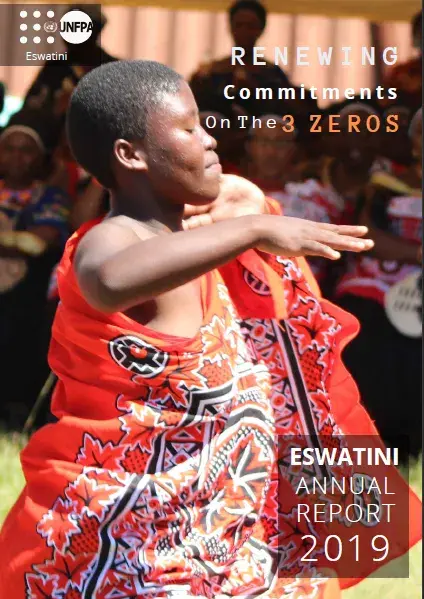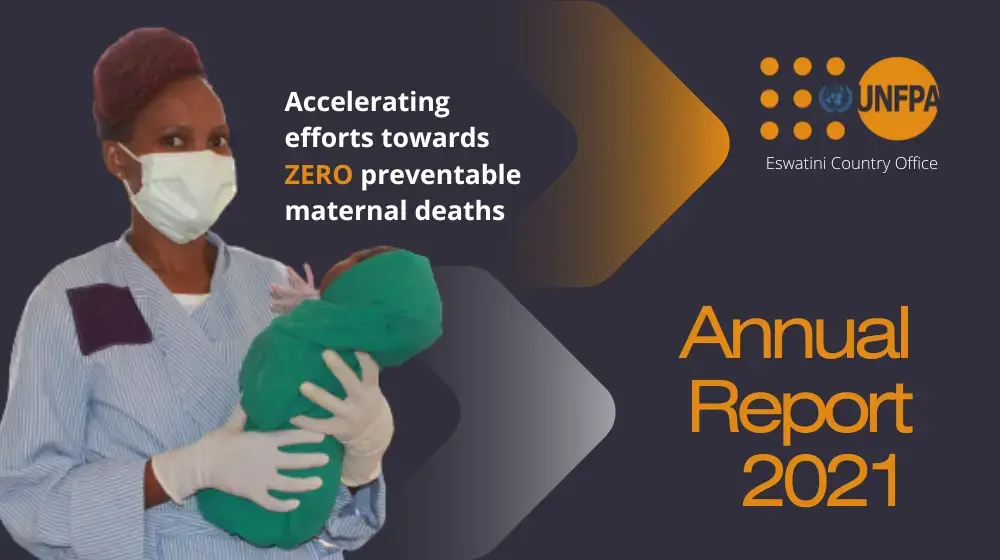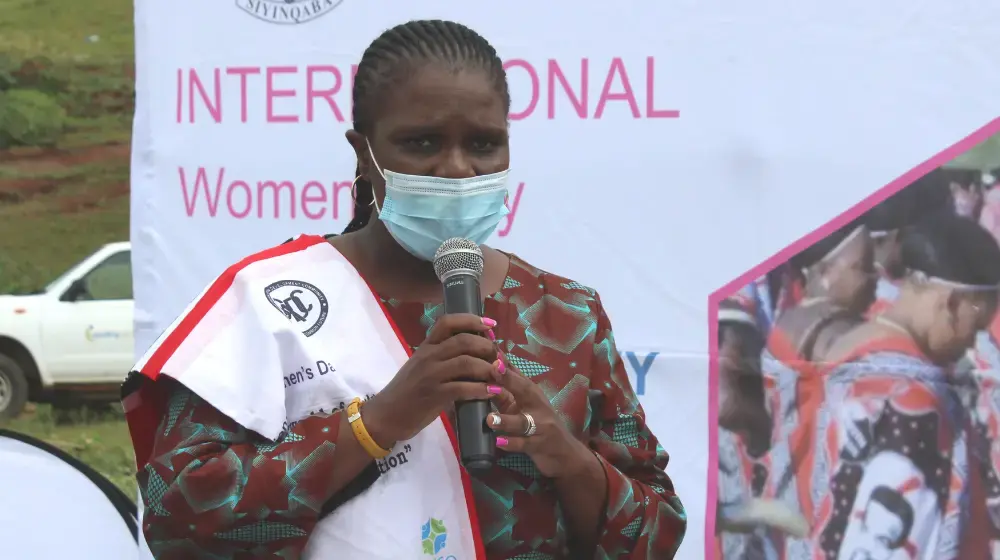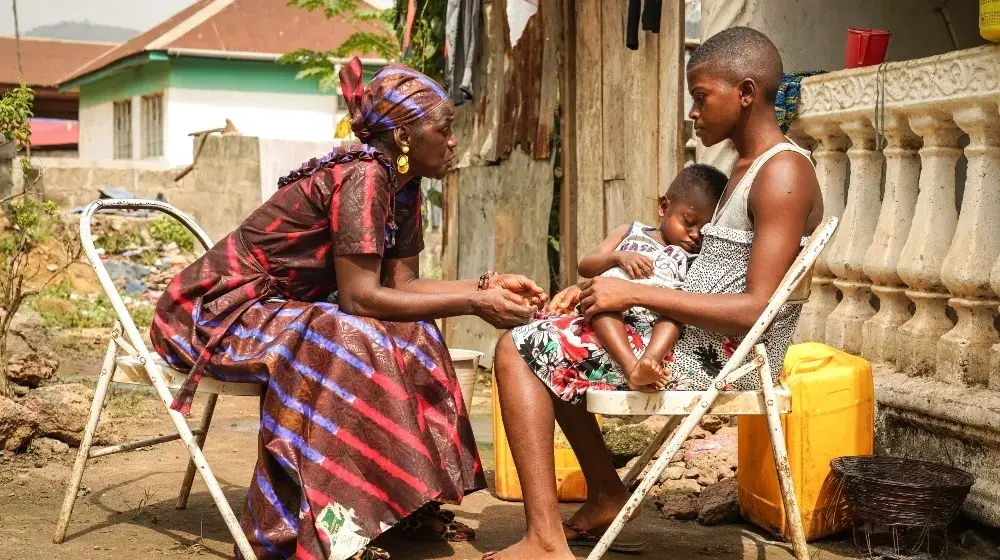We welcomed 2019 with much anticipation and enthusiasm as we marked the 50th anniversary of the establishment and existence of UNFPA and the 25th anniversary of the International Conference on Population and Development Programme of Action. It was a great pride to engage partners in these milestones especially because the whole celebration was about renewing commitments to achieve reproductive health and rights for all, including women’s empowerment. Participating in the Nairobi Summit was also itself a milestone for Eswatini as the country managed to send delegates to Nairobi to be with a global audience to share Eswatini’ s commitments to the transformative agenda of ending preventable maternal deaths, ending unmet need for family planning and ending gender-based violence and harmful practices for its people.
UNFPA Eswatini also successfully conducted a country programme evaluation (CPE) in 2019 which was rated good by the evaluation office. The country office also began preparing for a new country programme which will be implemented in 2021-2025 under the newly established United Nations Sustainable Development Cooperation Framework (UNSDCF) which also began in collaboration with partners and the UN system in the country. The semi-annual and annual review and planning of the programme was also conducted where key results achievements were reported and celebrated with partners, whilst encouraging them not to lose sight of the fact that some challenges and gaps still remain, which include:
- HIV/AIDS - continues to be one of the most pressing challenges that young people in our country are facing, with heightened vulnerabilities for girls and young women. HIV prevalence among young females aged 15-19 years stands at 10.2%, compared to 1.9% for males the same age. HIV incidence is also significantly higher amongst young Swazi females (15-19) compared to the males of the same age group standing at: 3.84 for females compared to 0.84 for males.
- Teenage pregnancy - is also a challenge for our young Swazi girls. Currently the adolescent birth rate in the country stands at 87 per 1000 adolescents, and teenage pregnancy is one of the main factors contributing to school dropouts in the country. The high (30%) unmet need for FP among young people requires innovation.
- Gender-based violence – Young people in Swaziland continue to experience very high levels of violence, again disproportionately affecting girls compared to boys. The national estimate is that 1 in 3 women had experienced some form of sexual violence by the time they were 18 years. A very unfortunate statistic indeed, one that tells us violence is experienced by our children very early in their lives, at a time when all that should be occupying their minds is school and play.
- Poor access to Sexual and Reproductive Health (SRH) information & services – A very limited number of healthcare facilities in the country have youth-friendly services, and this deters young people from accessing SRH information and services from these institutions.
The partners were requested to note these challenges and gaps as well as sincerely reflect on them and find ways of turning them into opportunities as we move forward with the country programme implementation. The reviews implore participants to explore how we can take the programme forward with more innovation, more strategic partnerships, and more ideas on how to get the best value for money from our resources. The Eswatini Office Country Director, Ms Beatrice Mutali encouraged the country office staff and partners to continue working dedicatedly by making sure that all our efforts are aimed towards the attainment of the 4 ambitious goals. She mentioned that we recognize that it is only with the presence of our partners and stakeholders that introspection, sustained strategic engagement and results can be achieved for the benefit of all Emaswati whom we serve.
A few key results that have been achieved in 2019 includes the
- Antenatal Care Guidelines finalized
- National Guidelines for Health Sector Response to Sexual Violence on clinical management rolled out at the regional level
- 74 per cent of health facilities provided youth-friendly integrated family planning services
- 24 health care workers trained to confidently and competently provide cervical cancer screening (VIA) and cryotherapy
- 166 health care workers trained in Health Sector Response to Sexual Violence
- National commodity security strengthened through logistics management information system data verification visits in 120 health facilities in all four regions
- 81 per cent of health facilities reported no stock-out of family planning commodities in the three months prior to survey, an improvement from 30 per cent
- Life-saving maternal health medicines magnesium sulfate and oxytocin procured in response to high stock-out levels
- 74 per cent of public health facilities at secondary and tertiary levels provided essential health services packages for survivors of sexual violence
- Life Skills Education for in-school youth scaled up to 282 secondary schools, reaching approximately 130,000 learners
- 2018 Annual Civil Registration and Vital Statistics Report produced
- 4 major national plans and policies integrated the demographic dividend concept.
The results would not have been achieved without implementing partners' good work is commendable as observed from the reports and monitoring system that planned activities were conducted according to the annual work plans that we have signed. However, it was also noted that there have been some ad-hoc strategic activities that had been submitted for support and implementation outside the signed work plan, which though indicating flexibility of the programme needs to be properly guarded against as much as possible. Whilst evolving funding dynamics globally have made for a somewhat challenging resource mobilization terrain, UNFPA Eswatini continued to explore and encourage all IPs to find more innovative strategies, partnerships and ways of doing business, built on our combined strengths, expertise, resources and coordination. The UNFPA mandate which is of noble cause has been boldly, visibly and vocally communicated and advocated for with the organization's limited resources. The Sustainable Development Goals (SDGs) require transformative shifts, integrated approaches and new solutions, particularly when it comes to advancing Sexual Reproductive Health, gender equality and the empowerment of women and girls as well as vulnerable populations in the context leaving no one behind.
UNFPA Eswatini country office has continued to leverage resources from other strategic and development partners including the UN to support the programme and shall continue to pursue the private sector partnerships to broaden our resource mobilization efforts.
Margaret Thwala-Tembe
Acting Head of Office
UNFPA Eswatini





